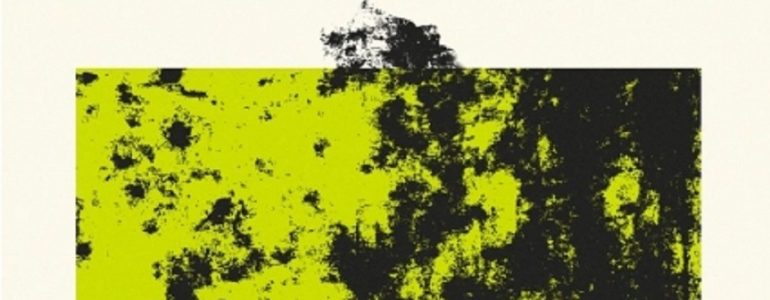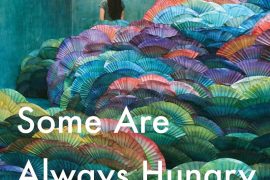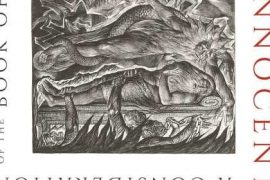EcoTheo Review: For our Adoration issue, we are speaking with writers about themes of Adoration, and as the author of ten books of poetry, stories, novels, and essays, you have no doubt encountered, wrote about, and have perhaps even sparred with it. The word Adoration can have a variety of different meanings to different people, and over time those meanings can change. How would you define it, and what interests you about the idea/theme of Adoration?
Joyelle McSweeney: I was delighted to see EcoTheo‘s editors define “adoration” as “from Latin, toward the gold.” A more conventional etymology would be ad + orare, to pray towards or beseech. So, with this double etymology, the word ‘adoration’ becomes a gold smuggler, bearing a surfeit of meanings, a surfeit of connotations, a wayward yet intoxicating doubleness. For me, it’s in this multifariousness, this contradiction, rather than in some supposed purity, that Go(l)d’s dazzle and fascination lie. This glamorous doubleness makes me think that Gold is Art’s insignia—as it is God’s.
In the Catholic visual imagination, Gold is, like God, a holy paradox, at once untouchable and immanent, absent and omnipresent.
My aesthetic sense was born in my Catholicism, and to be Catholic is to have one’s eyes full of gold—in big places but also small—on prayer cards on your aunt’s bedside table, the flaking Roman numerals under the stations of the cross. In the Catholic visual imagination, Gold is, like God, a holy paradox, at once untouchable and immanent, absent and omnipresent. Gold is sublime because it’s able to embody opposites—it’s the sun and also just a dot in a disk in an alchemist’s notebook. One of the names of the Virgin Mary, both pregnant and impregnable, is House of Gold. And in the case of God (but can God just be a case?), both threat and power wear the same glove, with the same gold button which winks at the child as He reaches for his (gold) cigarette case.
As I grew I began to understand the history of the Catholic church and its role in conquest of the Americas, how it got all that gold, the myths of the Seven Cities of Gold that motivated and concealed the reality of enslavement and genocide, the melting down of sacred indigenous objects for transport back to Europe as gold bars. I also became aware of the harmful and exploitative extractive practices that cover the globe to this day wherever gold or other precious metals are found. For me this sinful element of Gold actually magnified its role in my thinking—again, as a Catholic, the deepest sins and the highest ecstasies wear the same gold glove.
I think it’s my double sense of Gold, and my sense of its imbrication with God, and with humans as poor copies of God, with all God’s good and bad instincts—which lead me to see Gold everywhere, and to lace it all through my books. If you see gold or a crown in my book, it’s like me drawing a ring around sites of power and problems, from the gold curls worn by the dubious male protagonists of all three of my verse plays to the gold littering my most recent book, Toxicon and Arachne, where you can find the following:
gold thorns, gold eyes, golden plumbline, gold chorale, gold hair, golden throated barbet, golden spike, gold gilt border, gold particle, gold husks, golden hand, golden dome, gold bullet, the suture stemmed in gold, stout rivets, gold eye, golden torque, golden throat, golden and spreading stuff, the golden state, gold plate, A Golden Age, Goldfinger, and the Golden State Killer.
There are also 26 crowns, including a policeman’s ‘badge/ that brays/like a crowned/ tooth in a grave.’
ETR: What a great response, and a great excerpt you included from your book. Your Catholicism helped shape your aesthetic sense, but the more you understood its history, the more you saw how problematic it could be, especially as it related to the Church’s past and the acquisition of gold. Adoration, therefore, has become a two-sided coin of sorts, and I’m wondering to what extent you view other things—through the lens of a writer, a professor, and just a human being—that go beyond faith or religion (i.e. death, life, etc.)?
JM: As an artist I’m always interested in things that are double but not binary—that is, they have a doubleness to them that includes an infernal superposition where both are true—or not true—at once. When would-be binaries collapse, they release an infernal energy whose behavior can’t be predicted– an energy that could be political, cosmic, sensual, etc. Maybe you could call that the virtual. Translation sets up one such relation, where a would-be binary (source language, target language) collapses and something lawless (poetry? political possibility? a ghost?) is released. Posthumicity is another—a state that goes on, life-like (but not life) after death. In fact, like-ness itself, metaphor, simile, which American poetry moralists seem to frequently abjure, is another one of these relations—the two entities in the comparison are-and-are-not each other, and this undecidability, this impossible doubleness and supersaturation, releases the delicious dark energy which may not agree to apply itself to conventional ethical or aesthetic aims.
Oh, another name for this is the Sublime.
Translation, posthumicity, outrageous likeness, and the Sublime.
And two other strong interests of mine which also behave in this undecidable, supersaturated way are Anachronism and Sound. Anachronism is when one temporality aberrantly presents itself inside another or goes about in the clothes of another, until the category of Time itself feels dismayed, overrun, defunct and spectacular; Sound is that completely unthinkable saturation which mystifies me at every turn.
In fact, I’ve been losing my hearing for about ten years and am moderately hearing impaired. As my hearing retreats, Sound becomes more and more mysterious to me, and totally compelling. My hearing is so aberrant, my ear bones sounding their own bell. Is tinnitus true Sound, or just Sound’s ghost? Is an earworm an anachronistic sound file played back by the worms that will haunt one’s brain in one’s eventual grave?
Could Sound be something other than the registrations of a typically functioning cochlea, auditory nerve or cortex?
Could Sound be an avatar of Art’s disturbance, Art’s eventfulness, Art’s arrival?
ETR: It’s unfortunate to hear about your loss of your hearing. I’m reminded of Borges and his eventual blindness at the age of 55. In his poem “On His Blindness,” the final two lines so beautifully capture the importance of his writing as he (or the speaker if you will) faces the reality of his condition:
Others have the world, for better or worse;
I have this half-dark, and the toil of verse.
Not to stray too far from the topic of Adoration, but has the mystery of Sound and of writing grown because of your hearing loss? Do you feel you are closer to the Sublime?
JM: Yes! As my hearing has declined, I have felt further impelled by Sound’s mystery—where does it come from, where is it going? My hearing drops out at certain volumes and frequencies, the shapely definition of words is lost, some melodies play entirely undetected by me, too piercing or too low, and often my brain is irritated to have to encounter the remainder– pulses, presences, withdrawals, dwindlings, ringings, stimulation my brain can’t convert to sense. I’ve become entirely distracted and devoted to the presence and withdrawal of Sound, the presence and withdrawal of Art, to Sound’s intervention, to Art’s, to God’s– all these make the shape of each other, all these are likenesses, alike but not identical, erratic and fickle and golden.
When I truly feel like I am ‘writing’, I am driven along by Sound, Sound provides the shapes, the jumps, the Energie. As I revise, I go back and shape the words around the Sound. It feels fluid, it feels inundative, I think of the liquid that tilts in Eustachian canals, all the little Ovidian ear hairs bending like reeds, and I wonder whose voice I was listening to when my auditory nerve maxed out (answer: St. Kurt’s). St Eustace went out to hunt a deer and the deer looked him straight in the face; St Eustace and his family were put in a brazen bull. I think of the contrary doubling of singing and drinking in Keats’s “Ode to a Nightingale”, the idea of unheard, impossible song as hyper-saturated with sweetness, virtual (“I want a brighter word than bright”), the bird-poet as ‘full-throated’, but what a crushable throat, the song that drains in through the ear and rises in the poet’s throat. This feels exquisite and unsustainable—like drinking up, like Keats, the entire River Lethe, or drowning, like Jeff Buckley, in the Missisippi, golden-throated, to live forever and/or swoon to death!
It also costs a lot to lose your hearing. My hearing aids are the most expensive thing I own by far. Tinnitus rings like gold coins in the ear.
Maybe that’s what vision’s for, to teach us what to long for. I’ve often wondered.
ETR: To return to the first question and your response, you said that you lace Gold throughout your books. What, however, is laced in your books in Gold’s absence?
JM: What an excellent question, and I’m not sure I have an answer! Because while everything smuggles its gold into these poems, there’s always something the poems are racing to meet, and can’t quite meet, something the poems are racing away from, but can’t quite escape. I was writing to the poet Cal Bedient the other day, and I wrote, momentum is important to me because I feel impelled to race along in my poems, to race along the fuse just a lick ahead of the flame. It’s paradox that constitutes my poems, the contradiction, the cat both alive and dead in the mystery box, the exuberance and the dismay, all unbearably exorbitant—(from Latin ex-orbita, off the rails and out of orbit)—and all for the same heartbreakingly low, low price.
ETR: What are your everyday adorations?
JM: Wow, these questions are getting harder and harder. As a devout Decadent, it’s my daily work to build artificial dreamscape as a bulwark against the mundane (from mundus—the world). But then again, even I must admit, the harder you look at it, the more the world seems to shine. Rust Belt rivers are vexed and profound; our river is the St. Joseph River, whose Potawatomi name is Senathëwen Zibé and whose Miami name is saakiiweesiipi. The St. Joe bends and gives South Bend its name and goes beer bottle green in the summer, svelte slate grey in winter. It gives back no light and seems absorbed with its own affairs. I try to gaze upon it every day, literally gaze upon it, until my eyes unfix and I’m inside its flattened, abstract planes. I’d like to live there. Maybe that’s what vision’s for, to teach us what to long for. I’ve often wondered.
ETR: Any words of wisdom/advice to those also attempting to resist the mundane, or that which resist (our) adoration?
JM: Well the problem is this world. The solution must be underworlds, otherworlds, antiworlds, paraworlds and afterworlds (which may be foreworlds). Luckily there’s such a preponderance of artists, poets, activists, and dreamers—alive, not-yet-conceived, and posthumous– working in anachronistic confluence, fed by so many streams of speculation and inheritance, to manifest a multiverse. For my part, I am a devout Decadent, so I firmly believe in anachronism, inversion, reversals, paradox, metaphor, error, hyperdiction, ornament, odes, Frank Ocean, the Sublime, immodesty, immoderateness, and going all the way. My aim is to exhaust my star.





